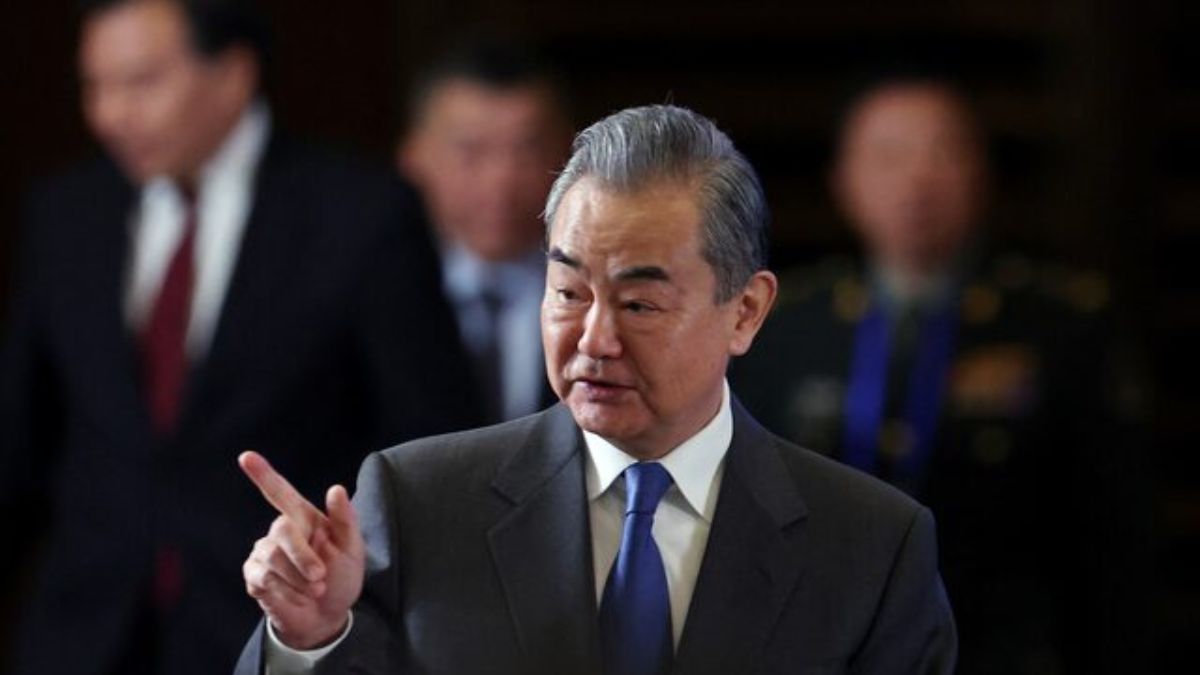China issued carefully calibrated statements following the India-Pakistan ceasefire, urging both sides to exercise restraint and avoid escalation after days of intense conflict and terror attacks in Jammu and Kashmir. In a phone call with Pakistan’s Foreign Minister Ishaq Dar, Chinese Foreign Minister Wang Yi expressed confidence that Pakistan would respond calmly and make decisions aligned with its “fundamental and long-term interests”. This came along with China’s rhetoric that it supports Pakistan’s sovereignty and counterterrorism efforts.
Interestingly, when Wang Yi spoke with India’s National Security Adviser Ajit Doval, he condemned the Pahalgam terror attack that killed 26 people most of whom identified on the basis of their religious beliefs, and voiced China’s opposition to all forms of terrorism.
Wang stressed that China supports and expects India and Pakistan to achieve a “comprehensive and lasting ceasefire through consultation,” describing peace as a “common aspiration of the international community” and highlighting the need to cherish regional stability.
“China believes that Pakistan will respond to the current situation with calm, and make decisions in line with its fundamental and long-term interests,” Xinhua quoted Wang as saying in the phone call with Dar, who is also Pakistan’s deputy prime minister.
This comes amid a tentative ceasefire understanding that India agreed to with Pakistan after its military officer reached out to the Indian side seeking de-escalation. The ceasefire understanding remains fragile and India said it is maintaining high vigil along the Line of Control (LoC) and the international border. As the ceasefire situation evolves, more clarity on its sustainability is likely to emerge.
Impact Shorts
More ShortsWang says China condemns Pahalgam attack
In conversation with Doval, Wang, according to a Xinhua report, said, “China supports and expects India and Pakistan to achieve a comprehensive and lasting ceasefire through consultation, which is in the fundamental interests of the two countries and meets the common aspiration of the international community.”
Wang also made it a point that China condemns the terrorist attacks in Jammu and Kashmir’s Pahalgam.
China’s dual messaging — reminding Pakistan of its strategic interests while aligning with India on counterterrorism — reflects its dilemma over its deep-rooted presence in Pakistan, which is becoming unviable to maintain as an ally. This is something that the US navigated through for decades before making a break after 9/11 mastermind Osama bin Laden was traced and eliminated in Pakistan’s garrison city Abbottabad.
On the other hand, China sees India as a rival due to India’s emerging status as an economic, military and geo-strategic power. The border issues between India and China remain unresolved, but largely peaceful in the long term. China’s attempt to test India during the early months of Covid-19 pandemic at the Line of Actual Control (LAC) in Ladakh was met with forceful resistance and multi-pronged counter-measures, setting a global tone for scrutiny of China’s economic and business tricks.
This contextualises Wang’s remarks in his telephonic conversation with Doval as he expressed China’s willingness to play a “constructive role” in facilitating dialogue and peace between India and Pakistan. India has rejected all forms of mediation between New Delhi and Islamabad, and has held countries that support and bail out Pakistan on international forums responsible for the continued flourishing of terrorism in that country.
Pahalgam and after
Hostilities soared between India and Pakistan after the Indian military hit terror infrastructure in Pakistan and Pakistan-occupied Kashmir (PoK) on May 7 in response to the Pahalgam attack, which claimed 26 lives.
India’s response came in the form of re-evaluation of economic and bilateral pacts, including the Indus Waters Treaty, and Operation Sindoor, the military exercise that targeted nine top terror bases in Pakistan-occupied Kashmir and Pakistan on May 7. Operation Sindoor continued after May 7 as Pakistan violated Indian airspaces and targeted civilian areas and military installations with drones, fighter aircraft and ceasefire violations.
India responded by hitting Pakistan’s military assets, including six airbases, inflicting severe damage to its capabilities to launch attack across the border and the LoC. India made it clear that the ball of de-escalation lay in Pakistan’s court.
The two nuclear-armed neighbours on May 10 reached an understanding, not an agreement, to stop all firings and military actions on land, air and sea with immediate effect after four days of intense cross-border drone and missile strikes.
Doval told Wang that the Pahalgam attack resulted in serious casualties for the Indian side and that India needed to take counter-terrorism actions.
War is not the choice of the Indian side and is not in the interest of either side, Doval underlined. He underlined that the success of the ceasefire understanding depends on Pakistan’s commitment to uphold its sanctity.
)